Kingdom Hearts’s Xehanort: A Villain Analysis
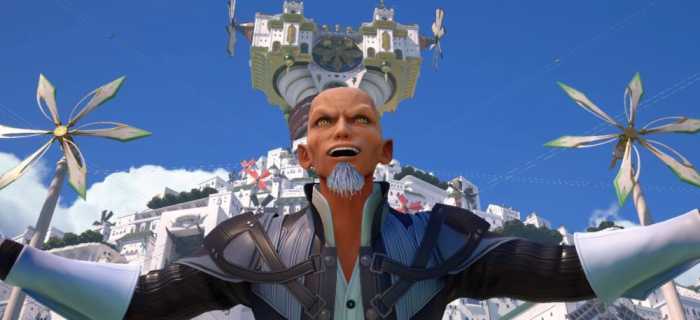
The Kingdom Hearts series is a lengthy video game series that debuted in 2002 and is directed by Testuya Nomura. 1 While there are quite a few characters in the series, the villains, from Ansem Seeker of Darkness to Luxu, are memorable. In particular, the leading villain for most of the series, Xehanort, exudes the personality of someone that the player loves to hate. He always knows what is going to happen, and it will go exactly according to his plan, even if he has to create thirteen versions of himself to do it. This article includes major spoilers for Kingdom Hearts: Dark Road, Kingdom Hearts: Birth by Sleep, Kingdom Hearts: Dream Drop Distance, and Kingdom Hearts III.
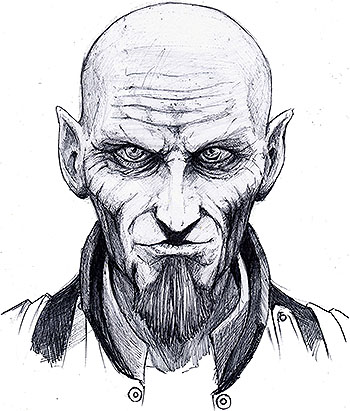
Xehanort’s journey begins in Dark Road as a young man, and ends seventy-five years later in Kingdom Hearts III. During the events of Dark Road, Xehanort was hoping to solve big problems, namely, why the World functioned the way it does and what it meant to be a Keyblade wielder. By the time of the events of Kingdom Hearts III, however, Xehanort is an old man who has seen the World break into many worlds and is assured of what he must do to attain his goal of reforming the World into an all new one. His plan is fairly detailed, and will be covered in terms of chronological events. By covering Xehanort’s story in chronological order, it becomes easier to see his descent from curious boy wanting to see the world to mastermind villain seemingly still playing a long game of Alba and Ater 2 with Eraqus, using the Book of Prophecy as a rule book.
Kingdom Hearts: Dark Road
In the events of Dark Road, Xehanort is a young boy on Destiny Islands, raised to believe that he was the Chosen hero of the Prophecy, who dreams of seeing something more in the world. The young boy has his wish granted when a mysteriously cloaked figure in brown walks out of a portal and explains that he is Xehanort’s destined point. Skeptically, Xehanort walks through the portal.
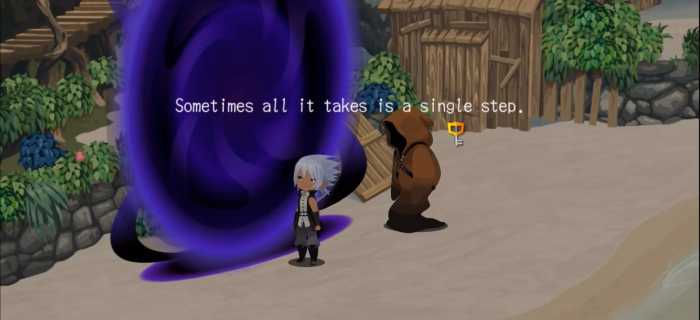
By doing this, Xehanort finds himself in a Keyblade Weilder’s class in Scala ad Caelum. Here, Xehanort meets his best friend and eventual rival, Eraqus and his other classmates, Bragi, Urd, Vor, and Hermod. Xehanort finds himself able to work with his other classmates, but wonders what his purpose is when their teacher, Odin, charges them with finding the missing upper classmen, who have not returned from their duties. While Odin admits that their class usually would not be allowed to travel to different times in the World via the Book of Prophecy, this is a dire situation, as Darkness is coming again.
While exploring different places in search of the missing classmates, Xehanort becomes a bit conflicted as to why he stepped through the portal away from his home. As he continues to fight against Heartless, Xehanort ponders where he would fall in the fight of Light versus Darkness, and he seems to feel more attuned to the Darkness. In between fighting Heartless, Dark Road often flashes forward a few years in the future where the player can see that, of the seven classmates, only Eraqus and Xehanort survive some kind of horrific event.
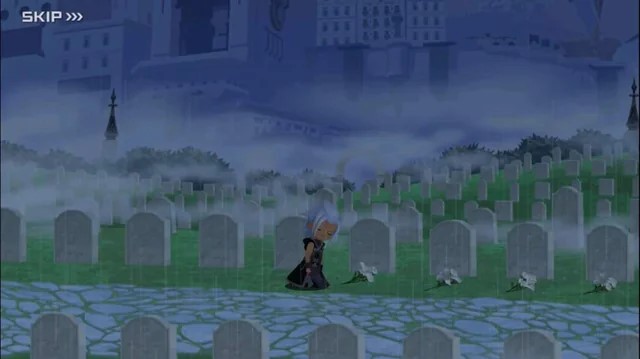
With frustrations running high over not being able to fulfill their mission, Xehanort’s class moves to their Mark of Mastery. The classmates are usually encouraged to travel the World for a year before coming to their decisions to take the exam, but Odin’s fears about the coming threat causes him to try and move forward with the exam. Xehanort’s journey takes a turn when he remains in a corridor of Darkness for too long and eventually comes to meet a strange hooded man cloaked in black, and sits with him for a while. The man encourages him to travel the World as old Keyblade Wielders used to do and gives Xehanort a cloak to protect him from the pathways of Darkness. When Xehanort finishes his journey, he returns to the strange man, assuming that he has the answer needed to save the World–that those with power are faking it, and that actual power comes from using the dark to find the light.
Unfortunately, Xehanort returns to Scala ad Caelum and watches the threat that Odin warned about and feared completely desiccate his class as well as some of the upper classmen who survived. Bragi turned out to be a betrayer, called Luxu, and led the Darkness into that space. Xehanort, in the face of such events, doubles down on what he’s decided during his journey, and ends up not fully siding with the Light. This reaction causes him to lose Eraqus, who decides, over the course of everything, especially after surviving the same trauma, that all Darkness is bad. 3 The two tenuously reconnect as Masters in Birth by Sleep, which will be examined next.
Kingdom Hearts: Birth by Sleep
In Birth by Sleep, quite a few years have passed since the events of Dark Road. Xehanort appears in Eraqus’s life again after he sent a letter explaining himself and the fact that he thinks he found the answer to take control over fate and what had happened to them as children. Xehanort helps Eraqus in observing Eraqus’s pupils for their Mark of Mastery exam.
While the two classmates did reconnect, Xehanort has undergone quite the appearance change, and his motives are not to be fully trusted. From silver hair and gray eyes, the Xehanort in Birth by Sleep has gone bald–a choice to show his resolve for his lost friends, has a goatee, and more noticeably, golden eyes–that seem to have changed after he forewent wearing the protective cloak against the darkness, but the reason behind his eye color change remains unconfirmed. 4 The air that Xehanort presents is also darker and more mischievous, like his steps are all toward one singular goal: sewing seeds of discord and chaos so that the ⲭ-blade can be forged properly.
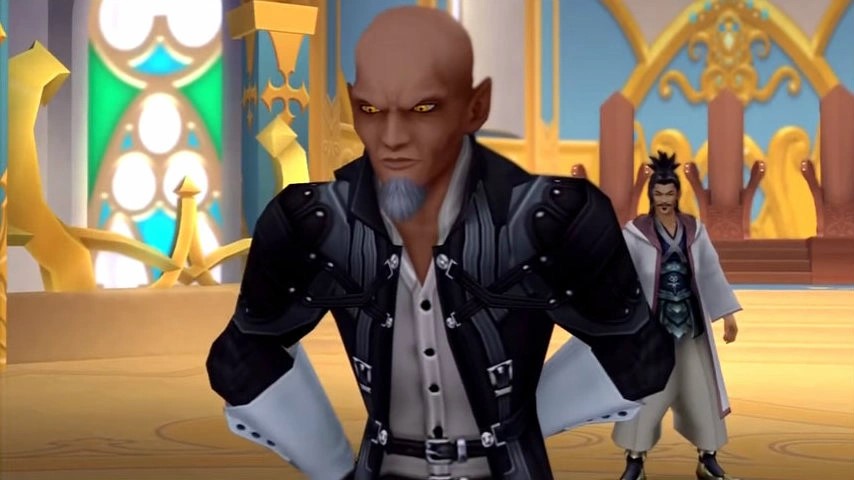
For the most part, Eraqus is not privy to his old friend’s motives, but, like the player, he does take some notice of them. However, Eraqus’s suspicions are diverted when he suddenly notices his student, Terra, giving into the darkness. Because Eraqus sees this use of darkness as an abhorrent wrong, he fails Terra from becoming a Keyblade Master, declaring Aqua to be a Master instead and ordering her to keep watch over Terra and to bring Ventus–as both he and Terra fled from The Land of Departure–home.
Xehanort, as the mastermind who orchestrated the splitting up of Terra, Aqua, and Ventus, smirks whenever he is on screen, which gives the player a clue that he is really the one in control every step of this journey. Xehanort even knows how to react to seemingly unplanned actions. Because of Terra being used by Maleficient and others allied to the darkness, and, because Xehanort could force Ventus to remember his time as Xehanort’s pupil, in which Xehanort removed all of Ventus’s darkness to form Vanitas, in hopes to forge the ⲭ-blade, Xehanort was able to kill Eraqus and frame Terra for it. By doing this, Xehanort was able to have light and darkness clash at the Keyblade graveyard and succeeded in calling an actual Kingdom Hearts into being and nearly reached his goal, especially since he used Briag to buy him time. 5 Everything goes according to plan for Xehanort, even when it does not, however, and despite being stopped by Mickey and Aqua, Xehanort is simply forced to play the long game, which will be detailed in Dream Drop Distance.
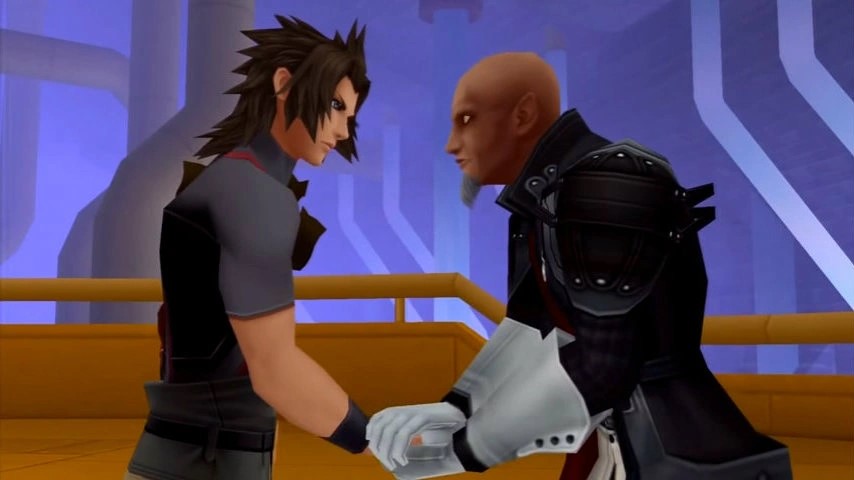
Kingdom Hearts: Dream Drop Distance
Xehanort is not really in the forefront of this entry to the Kingdom Hearts series, but his schemes and manipulations are felt throughout Sora’s section of the game. The payoff in Dream Drop Distance comes at the end of it, where Xehanort–a younger version of him, but with golden eyes–explains that he time travelled multiple times to walk his determined path to victory. His goal after Birth by Sleep was to puppet thirteen Darknesses to war against seven lights and see The Book of Prophecy end. One of the people he wanted to turn to the dark was Sora, and he had nearly succeeded in this goal by destroying Sora’s sense of reality.
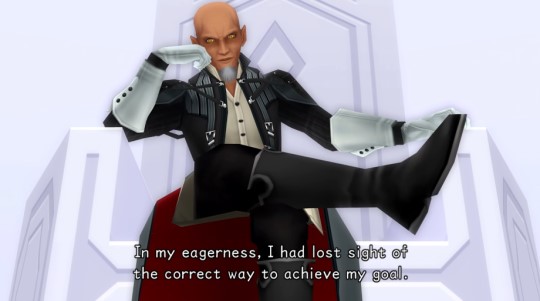
Mickey appears once again to thwart Xehanort’s plans, but, it is met with a knowing smirk. Xehanort simply taunts Mickey to take his seven lights so that they can meet the thirteen darknesses Xehanort has amassed to clash at the destined place. 6 This final Keyblade War is detailed in Kingdom Hearts III.
Kingdom Hearts III
By the time of Kingdom Hearts III, the player has a glimpse of just how much Xehanort has spent his life planning for these exact events. Every time Mickey, Yen Sid, and Sora think they have managed to get a step or two ahead of Xehanort, they have only proven to make the exact move that Xehanort needed them to. Young Xehanort appears in this game and serves as a means to taunt specifically Sora and to goad him to anger so that he stops thinking.
Outside of that, Master Xehanort lays in wait in the Keyblade Graveyard and prefers to allow the Real Organization XIII to act out his will. The thing worth noting here, though, is that most of the Organization has become part Xehanort to carry out this plan. As a result, they all have golden eyes, rather than the color they were normally in previous games. To this end, then, it becomes a bit more clear that Xehanort has mostly stopped trusting other people to take care of his work for him. He puts a lot of pressure on Sora to force him into making a decision he’ll regret. It is also possible that Xehanort sees something of his non-traumatized self in Sora, or, perhaps Xehanort realized he was not the Chosen hero of the Prophecy. There will be more about these possibilities in the sections below.
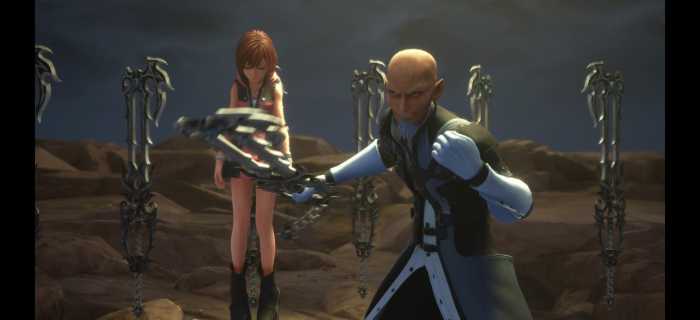
In any case, Xehanort succeeds in forging the ⲭ-blade by breaking Sora when Xehanort takes the life of Kairi, who is one of Sora’s most important people, and forces Sora to attack him in an understandable rage. At the end of Kingdom Hearts III, Xehanort is reunited with Eraqus, who hid his heart in Terra the entire time since his death in Birth by Sleep. In this way, Xehanort accepts his fate and relinquishes the ⲭ-blade to Sora and says that he is worthy of it. 7 Regardless of this resolution to the overall tale of this arc of Kingdom Hearts’s story, Xehanort actually succeeded in his goal, to an extent. This breakdown of events from the games helps form a sense of who Xehanort is, and this character type falls under a couple of specific archetypes for villains, depending on whether the player considers Eraqus as Xehanort’s main rival or the Guardians of Light. The concept of a villain’s journey and villain archetypes, detailed below, assists in better understanding Xehanort’s influence on Kingdom Hearts‘s narrative.
The Villain’s Journey and Common Villain Archetypes
While the hero’s journey is well documented, the concept of a villain’s journey is less well researched. Valerie Estelle Frankel detailed the concept of a villain’s journey, and followed Joseph Campbell’s Hero’s Journey to help map out the villain’s journey. 8 Other than that work, there has been an article done which details twenty eight different types of villain arcs. Xehanort’s brand of villainy will be determined with these two pieces.
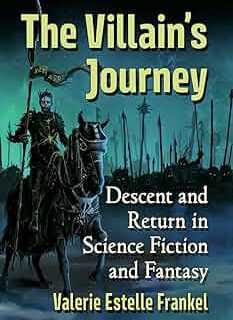
In his journey, Xehanort experienced similarities to the Hero’s Journey, but, much like a more accessible review of The Villain’s Journey mapped out, it diverges slightly after his Departure from Destiny Islands. 9 Xehanort’s departure from his home world, as previously discussed, comes about from a sense of someone else who knows what needs to happen. Then, after the departure, similar again to a hero’s journey, Xehanort receives a call to action that also becomes his trial when he is tasked with finding out what happened to his upperclassmen in Dark Road. This trial ended in failure, which is common in the outlined villain’s journey, and the failure spelled disaster for more than the missing upperclassmen.
Out of this failure, Xehanort makes a decision to recreate the events that led to his failure, but in a way that makes him able to save the day and achieve true balance between Light and Darkness to create a new World. His decision to walk down this path turns into something of an obsession. This ripple effect of failure leading into an obsession aids in explaining the next section, which analyzes the type of villain archetype Xehanort is and examines why Xehanort works as a villain.
Xehanort’s Archetype and Why He Works as a Villain
Xehanort has a few things that make him work as a villain. While he is shown to have a particularly traumatic background after a presumably good upbringing, Xehanort is not shown to exert control over things in quite the way that Eraqus did in reaction to the same trauma, until it was inescapable, likely because of Sora, who acted as his key to everything. This dual, but different reaction to the same trauma, evokes an inversion of what usually shapes a villain. In Birth by Sleep, Eraqus’s rejection of Terra was extremely antagonistic, and, while the actions of Xehanort appeared caring and concerned, he was found out to be a villain. Regarding Eraqus as opposed to Xehanort, one is not seemingly heroic over the other in this context, since they made choices, in reaction to their shared trauma that had drastic effects on younger generations.
These aspects of Xehanort’s character place him in the categories of the “Mastermind” and potentially, in regards to Eraqus and the Birth by Sleep antics specifically, the “Frenemy Killer” archetypes of villains, as he literally disposes of Eraqus off screen. The combinations of archetypes also help explain how Xehanort confidently does what he does without remorse, as the “Mastermind” archetype thrives when they control the narrative so completely that there is an extremely small chance the heroes will win the challenge set before them. 10This typing puts his further actions throughout the Kingdom Hearts series into perspective, particularly his actions in Kingdom Hearts III regarding his manipulation of Sora through the Real Organization XIII and the death of Kairi. With Xehanort’s archetypes, depending on which character he’s facing off against, defined, an examination of how Xehanort’s upbringing, past, and psychology informed his villainy is next.
The Psychology of Xehanort
In this section, Xehanort’s psychology is examined. While Xehanort may display certain traits of particular disorders, this analysis of his psyche is to enhance the understanding of his character. In addition, it is important to remember that people with such disorders do exist and are not to be villainized themselves, simply because a villain in a popular game series has similar traits. These traits will be determined from the DSM V or DSM V Text Revision, the ICD-10, and other academic research. Any details given on Xehanort’s possible psychological traits are not, and should not be used as any kind of official diagnoses. Rather, these traits serve to better understand why Xehanort acts how he does, and helps to bolster the lens of his archetype for the rest of this piece.
A case can be made for Xehanort being a narcissist, potentially one who suffers from narcissistic personality disorder (NPD). The ICD-10 classifies NPD as the following:
“A disorder characterized by an enduring pattern of grandiose beliefs and arrogant behavior together with an overwhelming need for admiration and a lack of empathy for (and even exploitation of) others.
ICDData.com 11
Personality disorder characterized by excessive self-love, egocentrism, grandiosity, exhibitionism, excessive needs for attention, and sensitivity to criticism.”
The DSM V Text Revision further clarifies that NPD involves:
“NPD is defined as comprising a pervasive pattern of grandiosity (in fantasy or behavior), a constant need for admiration, and a lack of empathy, beginning by early adulthood and present in a variety of contexts, as indicated by the presence of at least 5 of the following 9 criteria:
- A grandiose sense of self-importance
- A preoccupation with fantasies of unlimited success, power, brilliance, beauty, or ideal love
- A belief that he or she is special and unique and can only be understood by, or should associate with, other special or high-status people or institutions
- A need for excessive admiration
- A sense of entitlement
- Interpersonally exploitive behavior
- A lack of empathy
- Envy of others or a belief that others are envious of him or her
Sheenie Ambardar, MD 12
- A demonstration of arrogant and haughty behaviors or attitudes”
Xehanort shows a grandiose sense of self, an obsession over what happens around him, to the point that all the focus must be on Xehanort at all times. He necessitates control over all things to do with his future plans. On top of this, he seemingly trusts no one when it comes to reaching his goals. At the same time, Xehanort is able to make sure that he fits in with others long enough to at least get the better of them or to use them in some way, and, notably, there is a constant lack of empathy on full display. These things are indicative of narcissistic personality disorder, particularly because Xehanort does not see any issue with what he’s doing. On top of that, Xehanort also clearly displays an obsession with meeting his goal, his want or mastery of power, and his ideal future, which speaks to Master Xehanort’s entitlement, and these aspects of his personality overrun his life. While these are all clearly traits linked of NPD, it is important to note that other personality disorders would need to be ruled out prior to an official diagnosis for NPD, such as Anti-social Personality Disorder (ASPD), Borderline Personality Disorder (BPD), and Histrionic Personality Disorder (HPD).
What makes narcissistic personality disorder different from ASPD, BPD, and HPD is the instability of relationships, present in the other personality disorders. In ASPD in particular, there is a distinct lack of concern or loyalty for other people from a very early age, characterized by a stark lack of socially acceptable behaviors. 13 BPD is marked by its instability with relationships with self or others and emotional states. 14 Meanwhile, HPD’s characteristics include an overdramatic personality with emotions and reactions to match towards insignificant things to someone without this disorder. 15 Xehanort, contrary to this cluster of personality disorders, remains emotionally stable in most situations, was shown to have emotional, if distant, relationships with his fellow classmen in Dark Road, and, though it’s not revealed until his arc’s resolution, still had something of a stable friendship with Eraqus at the end of everything. Therefore, it is unlikely that what Xehanort presents as a villain could be the cause of these different disorders.
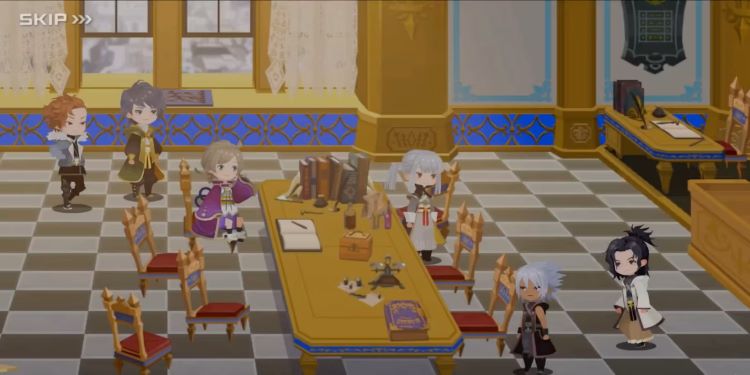
A few happenings in Xehanort’s background likely caused the narcissism to take root. As stated earlier, Xehanort was raised to believe that he was the child of Prophecy, which may explain why he is full of himself and sure of himself in Dark Road, right until that identity is challenged through multiple traumatic events. For example, the trauma he experienced at the end of the events of Dark Road with the death of most of his entire class and upperclassmen possibly planted a seed of insecurity and self-doubt that then festered into the personality seen in the rest of the series, particularly when one considers that Xehanort experienced identity trauma on top of being a minor when the trauma occurred. 16 In a backwards kind of way, following what happened to him and Eraqus as children, Xehanort wants to build a different world, where he maintains control and where his friends don’t die. To bolster this idea, Xehanort shows an intolerance of uncertainty long after his traumatic incident. He uses traits of his narcissism to attain his goals, even if some of those traits, like his severe self-sufficiency are potentially maladaptive. A study that was conducted examined whether or not some narcissistic traits could be used in a positive sense in the face of treatment and as a post-traumatic stress response in general–not those attached to childhood trauma alone. The study found that certain traits, like self-sufficiency were mediated via resilience. The study further states:
“Our findings indicate that it is important to assess not only desirable personality traits, but also others that are not desirable at first glance, such as those related to narcissism, in each specific health context before pathologizing them. To sum up, our results demonstrate that narcissistic traits might be, in some cases, adequate for coping with post-traumatic symptoms; consideration of this may be necessary to achieve a personalized approach to the prevention and promotion of emotional/mental health in the general population.”
Behavioral Sciences Special Issue Personality, Intervention and Psychological Treatment 17
In this sense, then, Xehanort has been following some of the advice of this study, which may indicate how he succeeded in his ultimate goal.
Narcissism is not always an innate character trait, as explored in the case of Xehanort. Instead, it can manifest via trauma, as evidenced above. In addition to this, there are five different known variations of narcissism, ranging from the more stereotypical grandiose form of narcissism where a person appears to be charismatic, self-absorbed, and controlling through exploitation, to covert narcissism, where a person appears to be selfless and humble, only for their need for acknowledgement to be underneath that persona. According to the way that Xehanort acts throughout the later games in the Kingdom Hearts series, his actions depict someone who might suffer from a combination of grandiose narcissism and malignant narcissism specifically. Malignant narcissism is a type of narcissism that also displays traits of “antisocial behavior and psychopathy”. A malignant narcissist can be sadistic, willing to harm others, and have a need for control. 18
Sadly, NPD often leaves the traumatized individual who experiences a narcissistic response to their trauma to have some difficulty with the concept of empathy. As seen in the case of Xehanort, he feels empathy, but it’s at a surface level, which is similar to how those who suffer from NPD experience empathy, according to a literature review on the subject. The literature review mentioned that it found 52 different studies that examined the concept of empathy and those who have NPD from a variety of countries and spanned about fifteen years of research. This literature review found that, in some instances, there can be damage to the parts of the brain that are responsible for the emotional response generally associated with empathy, but that the empathy factor is unharmed. Some of the studies theorized that the narcissist’s need for validation and power makes it so that other people, and their feelings, are not regarded by the narcissist as important. Vulnerable narcissists in particular feel fear of of being shunned by others, but also sometimes experience a sense of joy when they hurt others’ feelings.
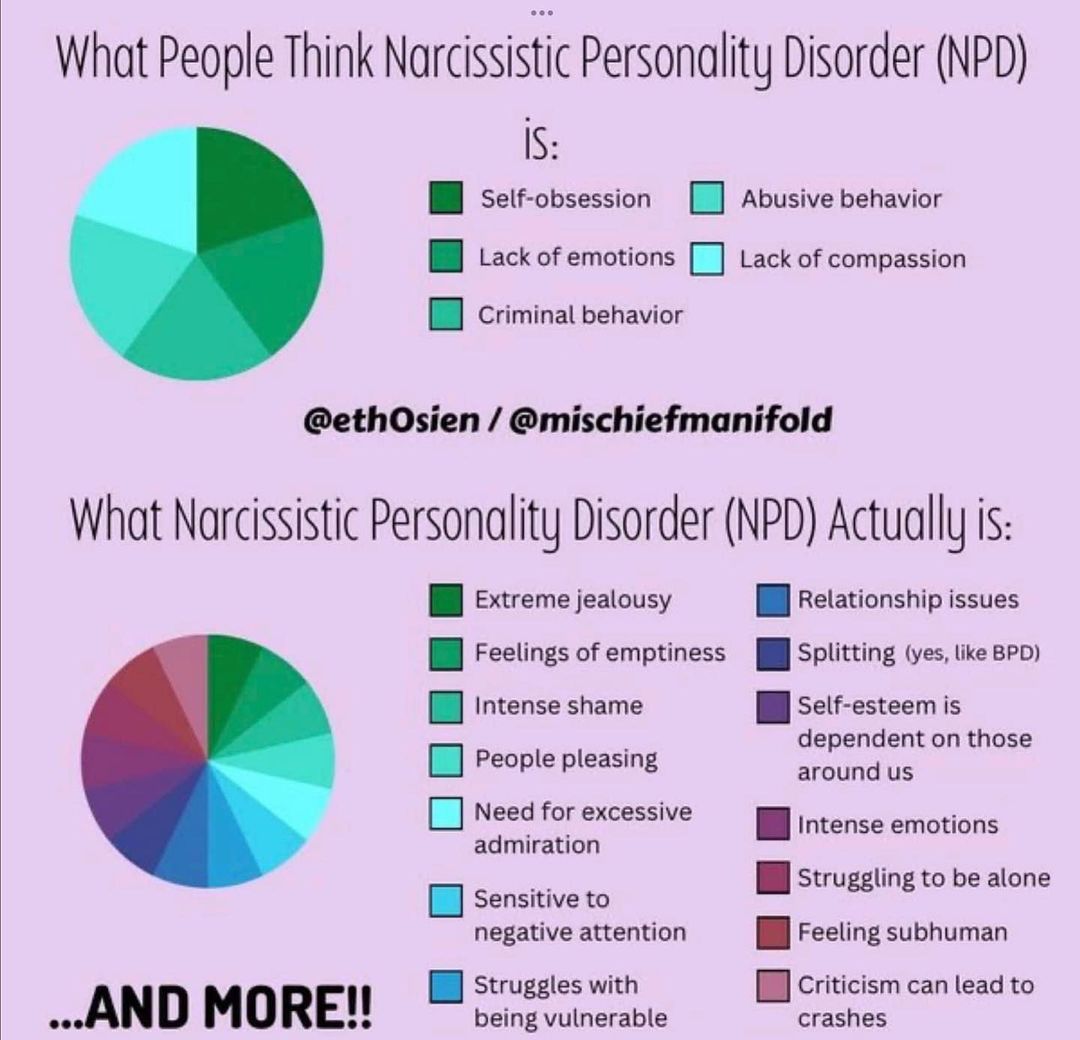
In addition to this fear, the literature review found that narcissistic personalities face difficulty in psychotherapy treatment, as some therapists consider it to be untreatable. Along with this, the narcissist in question might view seeking treatment as a personal failure. Despite this, the study suggests that getting the narcissist seeking treatment work on perspective taking outside of their own lives and consider how others might feel in certain scenarios. The study also touched on how the use of psychedelics, when used in medical clinical trials, aided in lowering the strong entitlement and lack of empathy that most narcissists struggle with. 19 However, as with other people, if a narcissist decides to overstep someone’s boundaries and causes them pain or exerts nonconsensual, isolating control in someone’s life, that is not okay, and while we can extend our empathy to a point, it is important to look after our own well being. However, an action, done with well-meaning intentions or out of fear, sometimes still causes pain and suffering to those it affects, so, in that way, a cycle of narcissism can form. This cycle of narcissism threatens to continue in the Kingdom Hearts series, thanks to Xehanort’s personality and actions, which drives home the “Mastermind” archetype mentioned earlier. In a lot of ways, how Sora handles the situations thrust on him directly works to counteract Xehanort’s actions and worldview, which is briefly examined below.
Xehanort’s Trauma and its Affect on His Villainy
A lot of what drives Xehanort and his main rival is trauma. Eraqus used what happened to him during the events of Dark Road to raise up Keyblade Wielders of Light, to the exclusion of all else. Xehanort, on the other hand, used the events of Dark Road to fuel his obsessions that he stated were his dreams to Eraqus: “To have thirteen selves to bring about a better World…no, wait, fourteen so that I could enjoy the new World.” In this regard, Xehanort was extremely straightforward with his goal, but, after seeing his entire class and his teacher and upperclassmen be destroyed by Darkness while he was completely powerless to stop it, Xehanort decides to stop at nothing until that goal is made reality.
Because the player can understand Xehanort’s intentions, especially after they discover his background from Dark Road, there can be a bit of empathy present for the villain in Kingdom Hearts. The catch is, however, that the means Xehanort goes through to manipulate events and emotions to reach his goal are not necessarily forgivable, fully. Someone doing something as dastardly as Xehanort in the name of prophecy–even if driven by trauma–does not make it excusable. A character who is another mirror to Xehanort is Sora. Sora shares a mundane background on Destiny Islands, was faced with Darkness stealing everything from him, and yet, Sora triumphs much of the time over what shaped him. Sora does this by constantly thinking of others and trying his best to find the best outcome for everyone. However, it would be easy to see how, if Sora made decisions that were more selfish and driven to those ends, he may have become more like Xehanort by the end of his present journey.
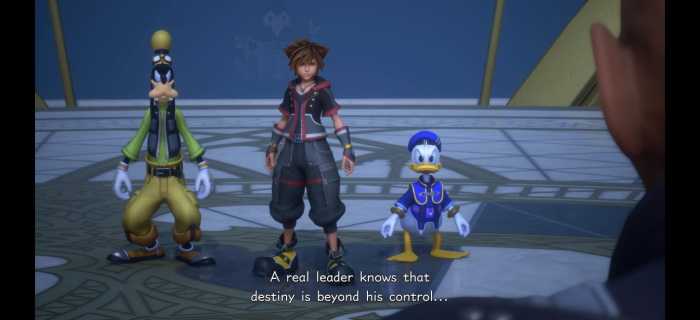
Again, a brief reminder that NPD affects people differently, and, as stated here, treatment is not easy. Because Xehanort exemplifies a lot of the traits one would expect from someone who has NPD, this analysis should not be used to justify vilifying people with NPD. What has been touched on in “The Psychology of Xehanort” section has been surface-level research to structure an explanation of how and why Xehanort acts the way he does.
Xehanort’s Resolution
The resolution to Xehanort does not end in the classic villain death at the end of Kingdom Hearts III. Sora is angry at Xehanort, sure, but, rather than simply force Xehanort’s life to helplessly end as he did to Kairi out of hate, Sora tries to show Xehanort the Light that he so clearly has abandoned. This fails, and is met by Xehanort further toying with Sora, by splitting himself into thirteen different clones, but, for the final fight, Xehanort wields the ⲭ-blade against Sora, and, in the end, it is used against him to try and unlock the Kingdom Hearts that Xehanort conjured.
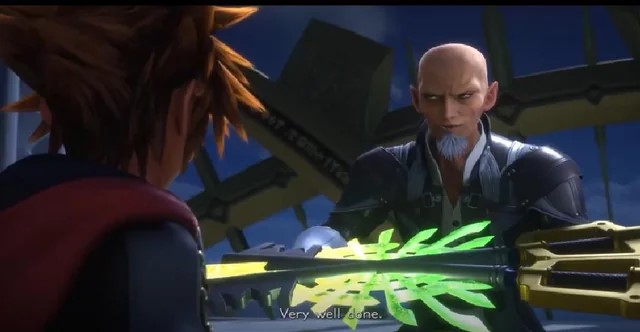
In the final moments of his life, Xehanort is reunited with Eraqus, who is able to finally talk with Xehanort honestly again, without the ongoing argument that had constantly been in the way between them. After this, Xehanort does not ask for forgiveness from Sora. Rather, he admits that Sora is the one who has been worthy to wield the ⲭ-blade all along and bequeaths it to Sora after simply saying that he was wrong. In this way, Xehanort’s resolution as a villain ended in a fairly balanced way. He might have succeeded in his goals up to a point, even becoming strong enough to reach his goal, but, in the end, Xehanort knows when he’s been truly beaten and relished in being reunited with his oldest friend.
Xehanort’s tale serves as a reminder that people sometimes struggle with unfathomable pain and mistakenly use that pain as a means to justify their ends. While Xehanort maintained a vision of the future that supposedly brought things into balance, how he went about attaining his goal does not bring satisfaction to anyone but him at first, and, arguably in the end, Xehanort’s goal no longer satisfied him. Xehanort no longer being satisfied with his end goal becomes evident when he is reunited with Eraqus and seems to be at peace with his loss, though this willingness to let go of his dream in the end does not excuse Xehanort from the pain he caused in pursuit of his goal. His end at Sora’s hand, while justified, is perhaps quieter and more harmonious than one would expect, given how quickly Xehanort admits how well Sora and Eraqus bested him, which displays how thoughtful and bittersweet villain resolutions can be, depending on the tone of the series they are in.
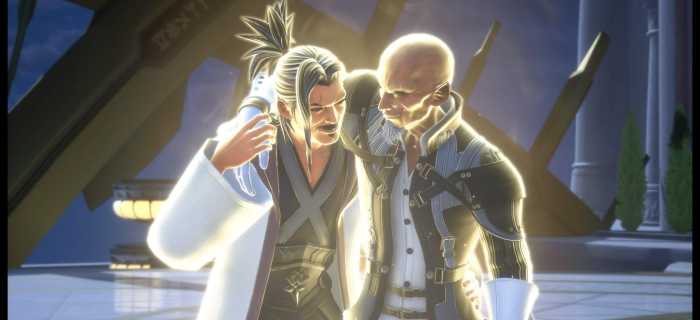
Works Cited
- Kingdom Hearts (video game). (2023, February 14). Wikipedia. https://en.wikipedia.org/wiki/Kingdom_Hearts_(video_game) ↩
- Kingdom Hearts Wiki. (2023, October 5). Alba & Ater – Kingdom Hearts Wiki, the Kingdom Hearts encyclopedia. Kingdom Hearts Wiki; Kingdom Hearts Wiki. https://www.khwiki.com/Alba_%26_Ater ↩
- Disney. (2020). Kingdom hearts: Dark road (n.a.) [Video game]. ↩
- Xehanort. (2024, April 10). Kingdom Hearts Wiki. https://www.khwiki.com/Xehanort ↩
- Disney. (2010). Kingdom hearts: Birth by sleep (n.a.) [Video game]. ↩
- Disney. (2012). Kingdom hearts: Dream drop distance (n.a.) [Video game]. ↩
- Disney. (2019). Kingdom hearts III (n.a.) [Video game]. ↩
- Valerie Estelle Frankel. (2021). The villain’s journey : descent and return in science fiction and fantasy. Mcfarland & Company, Inc., Publishers. ↩
- Breed, B. (2023). Valerie Estelle Frankel’s The Villain’s Journey: Descent and Return in Science Fiction and Fantasy [Review of Valerie Estelle Frankel’s The Villain’s Journey: Descent and Return in Science Fiction and Fantasy, by V. E. Frankel]. The Incredible Nineteenth Century: Science Fiction, Fantasy, and Fairy Tale, 1(1), 88–92. https://libjournals.mtsu.edu/index.php/I19/article/view/2376/1385 ↩
- Character Archetypes – V for Villain (28 Villain Types). (2016, August 8). Word Hunter. https://hunterswritings.wordpress.com/2016/08/08/character-archetypes-v-for-villain-28-villain-types/ ↩
- 2020 ICD-10-CM Diagnosis Code F60.81: Narcissistic personality disorder. (n.d.). Www.icd10data.com. https://www.icd10data.com/ICD10CM/Codes/F01-F99/F60-F69/F60-/F60.81 ↩
- Ambardar, S. (2021). Narcissistic personality disorder: Practice essentials, background, pathophysiology and etiology. EMedicine. https://emedicine.medscape.com/article/1519417-overview?form=fpf ↩
- 2021 ICD-10-CM Diagnosis Code F60.2: Antisocial personality disorder. (n.d.). Www.icd10data.com. https://www.icd10data.com/ICD10CM/Codes/F01-F99/F60-F69/F60-/F60.2 ↩
- Understanding Borderline Personality Disorder: An ICD-10 Perspective | Grouport Journal. (n.d.). Www.grouporttherapy.com. Retrieved March 30, 2024, from https://www.grouporttherapy.com/blog/borderline-personality-disorder-icd-10#:~:text=In%20the%20ICD%2D10%2C%20BPD ↩
- ICD-10 Version:2016. (n.d.). Icd.who.int. https://icd.who.int/browse10/2016/en#F60.2 ↩
- Stockbridge, I. (2023 May).The link between trauma and narcissism. Www.counselling-Directory.org.uk. https://www.counselling-directory.org.uk/memberarticles/the-link-between-trauma-and-narcissism ↩
- Montoro, C. I., de la Coba, P., Moreno-Padilla, M., & Galvez-Sánchez, C. M. (2022). Narcissistic Personality and Its Relationship with Post-Traumatic Symptoms and Emotional Factors: Results of a Mediational Analysis Aimed at Personalizing Mental Health Treatment. Behavioral sciences (Basel, Switzerland), 12(4), 91. https://doi.org/10.3390/bs12040091 ↩
- Hayes H. (2023, November 3). The Link Between Early Trauma and Narcissistic Personality Disorder. Heather Hayes & Associates. https://www.heatherhayes.com/the-link-between-early-trauma-and-narcissistic-personality-disorder/ ↩
- di Giacomo, E., Andreini, E., Lorusso, O., & Clerici, M. (2023). The dark side of empathy in narcissistic personality disorder. Frontiers in Psychiatry, 14. https://doi.org/10.3389/fpsyt.2023.1074558 ↩
What do you think? Leave a comment.




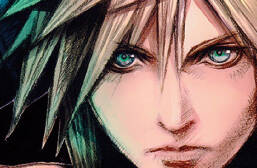






One of the best antagonists I’ve ever experienced in a franchise!!! Even though his saga ended after kingdom hearts 3 well technically kingdom hearts melody of memory haha I still think Xehanort will play either a cameo role in the future of the series and I cannot wait to see if that ends up happening.
Kingdom hearts is so similar to naruto!
I love this article but he is one of the worst villains. KH really needs a great villain that can say more than just “light, dark, hearts, evil, darkness”
I’m hoping that the Lost Masters arc might give us that!
I love the series despite the underwhelming xeonort but we all have our preferences.
Good breakdown!
Thank you!
I always found the final standoff between Sora and Xehanort as interesting. What do you all think is the meaning behind his last words to Sora?
Personally I think what this speach is, is a reflection of Xehanort’s suffering. He wants control, needs control because he believes he can fix everything, and if he can’t why did everything happen to him? Why was he separated from his mother, and raised all alone on Destiny Islands, if he wasn’t the child of destiny that could end the darkness? Why was all his friends murdered, if not for some twisted reason to set Xehanort on his path? Why meet the Master of Masters if he wasn’t special? His whole life, he was deemed a chosen one, and as a result his life and his own destiny was stripped away from him. All of Xehanort’s life he was the puppet of someone else, with no control over his own life or his own fate. And I think a bit of boomer humor is going on of “I turned out fine from this… so its not that bad.” I mean look at Dark Road. He was almost like the leader of the search party, people where having him be the leader for a long time, so to him, he has to keep doing it, cause its the only way he knows how to protect others he cares about. He’s seen what Darkness can do, he has seen what has to happen to destroy it. I think Xehanort’s method is a bit gruesome, but in a way, for the greater good. By stripping away the darkness, human sacrifice to destroy said darkness would no longer be needed, and his friends… wouldn’t have died for nothing.
Xehanorts monologue touches on the idea that when the world falls to darkness kingdom hearts’ light will come from it restore the world. Literally since Daybreak Town that happens, even the Scala we know today isn’t the old Scala. Then in the Keyblade Graveyard the darkness is thought to prevail again. Though Sora goes to Final World and comes out as the light to stop darkness. On that note let me state Final World has to be Kingdom Hearts as its the destination for hearts. On top of that the nameless star is there. In her world as we see in Verum Rex, that world fell to Darkness. A key to its saving was left as a light in Final World being her.
This story is getting way deeper, but i think Xehanort let Sora win. His young version seems not care as to what happens cause he can already see the future of sorts. Then in Melody of Memory Xehanorts memory knows where Sora is. It is like Xehanort said, a world would be born from Kingdom Hearts when darkness prevailed.
My only thing is how Verum Rex lines up time wise. It seems as though Yozora has been through some time, but then Xehanort and MoM make it seem like Verum Rex is a new world completely. Like it didnt exist at the same time as KH – KH3. In Union X MoM says Verum is a world not even he could see with his eye cause it hadnt been reached. The only world he didnt know about because it was new and hadnt existed yet. It’s like the world formed suddenly when the Guardians of light lost and Sora saved everyone.
I think MoM is lying though. I think he stole Kingdom Hearts from Yozora, the “True King” and the reason Sora was chosen is because he’s Yozoras counterpart.
It really feels like Xehanort’s actual plan always was to leave a legacy, have a worthy successor. He even mentions it in BBS.
Everything that happened? Plan B born out of desperation. If he can’t Save this world himself or raise a new generation of actual protectors of Balance – he at least will be the one to pull the plug and make sure the next world is free from Darkness.
But here comes KH3 and he ain’t blind… Through his actions new generation abandoned Eraqus’s teachings of Pure Light, even old Master Mickey agrees with his Balance teachings, the first Keyblade Master in YEARS is exceptionaly strong and wields Light and Darkness in equal measures exactly like Xehanort described.
And then there is Sora… A kid from an island who dreamed of other worlds and finding new friends… Like Xehanort did. The whole final KH3 sequence feels like Final Exam, Sora proving his worth and in the end getting X-blade bequethed to him – Xehanort after so many years found the one to carry on his Legacy.
Xehanort lost… But in the end he won. Because as he says “I never lose” and he does have “That kind of foresight”.
I understand how Xehanort feeling. In the end, he’s more than a villain, but he’s man who want to save the light and the future. I believe his hardship, pain and mistake are us and Sora’s greatest teacher.
Sora’s and Xehanort’s deeper meanings within their words in that scene just makes it impactful, doubly so since we’ve seen what happened in Dark Road. It’s part of the reason why KH3 is the best.
Xehanort sees himself as being above the fray, while Sora acknowledges that he’s a part of something greater than himself.
I can’t wait for the day this story is completed and what it could mean if anything for the KH series going forward.
He was an amazing character.
I’ve always been a fan of villains, and honestly I’m so happy his story is finally being told!
I don’t mind Xehanort being a sympathetic villain… I just hope they don’t plan to use that for every villain in the story. I get it Xehanort was the villain the whole time. An we are now understanding why. And he did get a happy ending.
Yeah, and given what little we know of the Foretellers and the Master of Masters, it really could be either sympathetic or not, I think. I wouldn’t mind some sympathetic moments, but, seeing a darker villain would be interesting.
We’ve enjoyed Xehanort’s great dark journey a lot: good young Xehanort, evil young Xehanort, Master Xehanort, Terranort, Ansem and Xemnas and then Master Xehanort and Terra again.
Xehanort is an excellent character, with better and worse incarnations, but all together they make a great movie. The only thing that has always been missing is to see a meeting between Master Xehanort and Maleficent, for some reason they never show that moment and I thought that in Dark Road it would be, but that’s Nomura’s fault.
I swear there are so many Xehanorts.
Sora: a real leader knows you cant change destiny and accepts that.
Also Sora: changes destiny to save his friends.
The simple fact remains, that looking out for other people, means that they’d want to look out for you in turn (maybe not always, but those qualities would stick with them). Sora and characters like him show how impactful that care towards new and old friends can be overall.
I personally am SUPER HYPE for the possibility of a xehanort return!
Xehanort is very good at reading people even when he looks down on them. He definitely underestimated Sora up until Sora wiped the floor with him, but I’m nearly certain the reason Xehanort wanted Sora as a vessel (even if only as a spare) was the potential Sora has.
Also, something that I’m not sure is true ( I haven’t gone into research on it at least) is that Xehanort is a blueblood, in that he’s related to Ephemer, just as Eraquis is related to Brain
I believe so, and, while I’m curious to see how it fits together, which is what Kingdom Hearts does to me, I’m worried about how Missing Link is going to play. It might have to be one that I watch cutscenes for.
You scratch that KH itch for me!
Thank you! I’m glad you enjoyed the read!
It’s very likely Xehanort is still alive.
I’m of two minds.
His actions destroyed lives, robbed them of years of their lives, and just straight up murder. I do respect he didn’t try to get others to sympathize with him.
On the other hand I do think it’s kinda interesting. Someone who believed in the light but saw when it came down to it was just too weak. Which honestly is fair seeing the monsters and endless hordes that exist. This darkness seems almost one step away from consuming everything.
Xehanort has been through some messed up stuff and in turn made who we saw him to be in the series,not necessarily saying that he is evil or if you were to say he was evil it would have to be a necessary evil,he was only trying to do something right but doing it in the wrong way that’s what I want to believe.
Rip xehanort!
And now, Sora will do the same.
He’s still an utter piece of crap. I get the understanding, but Mysterious figure in bbs still haunts me. He can go to hell. Lol
Oh, for sure. I agree, and it was very interesting to write this article on a number of levels.
It is very interesting Xehanort is born with the sigil of Betrayers in his Name. It is almost as if Xehanort is a Dark Vessel from the get go, and that the Master of Masters specifically saved him from that Dark Corridor to “make the Black Pieces”
And through his inevitably time travel, and “this happened because it already happen”, The Master scripted his scapegoated villainy. We cannot have “a Sora” without a Plot driver.
I’m really curious what the Master of Masters is up to. I did get the feeling that the Master of Masters kind of let Xehanort draw his own conclusions that seemed to fit the Master of Masters’s needs when he started asking Xehanort questions during their meeting, so, your idea is definitely possible.
Xehanort is an amazing character and feel he may be an important key to the fucher as well.
Xehanort really reads like an edgy OC.
I like that scene in kh3 with sora and kairi flying because that’s what happened in kh1 when she shared her grandma memories with sora from deep sleep.
Nicely done analysis, it seems about right, i wonder how things will develop with KH4.
Thank you!
I originally gave xehanort ending crap when I first saw it and thought it was BS but after KH DR it made me change my mind.
Oh, for sure! After seeing the end of Dark Road, I played through the series again, and there were a lot of things in III that hit different.
Xehanort did all this, so I’m scared of what’s to come for the series.
I feel bad for Xehanort i get why what he did he loss his friends he felt really bad for what happen.
It will be fascinating to see what happens next in this strange, strange franchise. Loved the games since I was a kid, but without Xehanort, I wonder what future stories they will weave.
Xehanort is a phenomenal villain, and his story is tragic. I don’t honestly think of him as a villain like I used to, rather a misguided hero. Someone who saw a way to fix the world he concluded was broken, only it went from being his goal in life, to the only thing that mattered, where not even other’s lives, worlds, or even the World as a whole, were of consequence when held against his objective. And frankly it paints the Master of Masters in a chilling light. Think about it; he knew because of The Gazing Eye that Xehanort would experience the loss of all his friends, and would take on the burden of their loss as his own failure. And he approached him, at this vulnerable state, and whispered in his ear of the way he could make it all better, if he were willing to step up and do it, knowing and expecting what it would do to Xehanort. That is seriously sociopathic behavior.
I love his character. Great vilains are ones you’re not necesseraly supposed to forgive, but the understanding of their flaws make you care for them.
Xehanort had potential to be pretty interesting villain, but how it was executed made him mostly a bore.
I understand him all too well…
The first time I watched KH3 I was wondering why Nomura took the path of making Old Xehanort’s character redeemable before he dies since what he did till Kh3 had been very unforgivable.
He is a tragic who had lost sight or perhaps, misguided. I had never hated any villains in KH lore because they somehow had this reason I can actually understand and Master Xehanort, though terrible, he actually have my respect for being this extremely knowledgeable Keyblade Master. Out of Eraqus, Andem the Wise, and Yen Sid, he is definitely the wisest and most knowledgeable Master, his knowledge is probably the closest to Luxu and MoM. He is one of the first to know the existence of quadratum too and for that, he has my significant respect.
Now his story is even sadder!
Even more sorrow!
I wonder that if when Xehanort killed all of Soras friends, he wanted him to feel what he felt when he lost his friends.
The whole debacle of people getting pissy because Xehanort was unrightfully “redeemed” at the end of KH3 always irked me. The game doesn’t do anything to redeem him of all the shit he pulled. Sora and co. don’t even forgive him. Eraqus reconciles with him, but that doesn’t come anywhere close to redeemed. The game doesn’t necessarily want you to sympathize with him, but to understand why he held his crazy ideals so close, and Dark Road is now giving more clarity on that aspect. People just got it way twisted. Anyway, thanks for putting out a quality breakdown of the character.
Yeah, that was a fine line to grapple with while writing this, actually. So much of what Xehanort did is truly inexcusable, and yet, they come from a place that could be understood, but never excused. Which, makes it hard to find satisfaction in Xehanort’s story, but, it’s also meaningful that someone does reconcile with him once he hits his arguable rock bottom–ironically right as his goals are starting to come to fruition. Thanks for the comment and the read!
xehanort: you require motivation.
I do love what they are doing with Xehanort by adding these extra layers of complexities to his character, backstory and motivations. When we first saw Master Xehanort in BBS and all of the terrible things he did in that game as well as a little in DDD–I felt they went with the whole “oh yeah I have done terrible things in the past, like really terrible but don’t worry it was all for the greater good” (almost like how Thanos tried to justify his actions in the MCU).
Dark road changed everything. Literally!
There’s also the theory that Sora, being the main character who’s connected to all hearts… is actually the Player’s 3rd life. He becomes the child of destiny and saves a misguided Xehanort by reminding him of the person who once took care of him and thought him about destiny, only to guide him down a different path.
Interesting theory! It would be wild to watch it be realized on screen or otherwise confirmed.
Xehanort has always been my favorite I simp for this old man.
Xenanort has been a long gone game, but when I remember how excited I was while playing it…
Dark Road implanting the idea of a 14th life for Xehanort is exciting in my opinion. It’s been alluded to through his interactions with the Destiny Island trio that he’s unofficially their Master in toxic, twisted ways. Who better to help Sora against the Master of Masters than the one person aside from Luxu to have knowingly interacted with them last?
I feel like sora is a shepherd and xeanort is a farmer and there ideas class but opening the door is what they both kinda can do.
Let’s see if I’m similar to xehanort by doing a checklist. Tragic past: check. Strategic in decisions: always, so check. Care about others of my world: unfortunately even when I was a kid, so check. Hiding my sorrow with a calm demeanor: check. Willingness to try and change what’s wrong with your world: check. Will easily do borderline evil deeds to achieve goals: no, at least not now. Considering last listed item as a check: yes, if I can’t do what I set out to do in a peaceful way.
Kinda seems like he came to realize his role in MoM’s plan and just set out to give 110%.
Great article. For anyone who doesn’t know Xehanort, the article gives them a clear picture of who he is